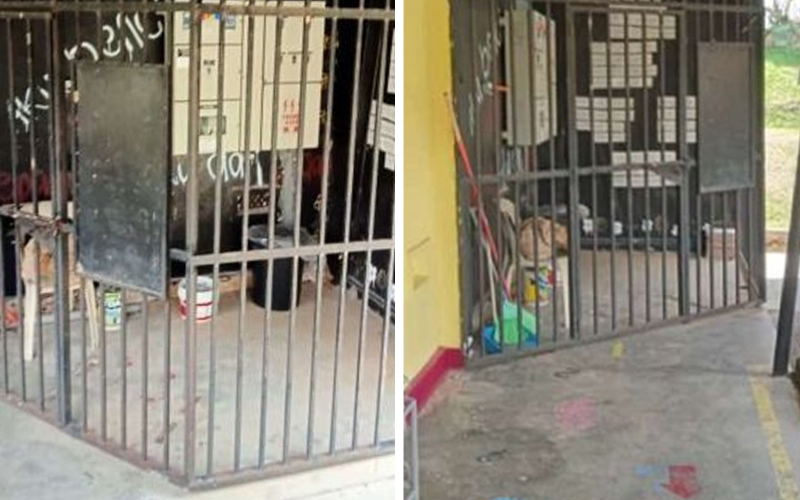
A father alleged that his seven-year-old son’s school teacher in Malaysia locked him up in a makeshift metal cage as a punishment for bad behavior. The father, Azuan, revealed the distressing incident on social media and said that the experience had ruined his son’s enthusiasm for attending school.
Azuan alleged that the incident occurred on Tuesday (June 27) at a school in Rembau, Negri Sembilan and that he had received information on the school WhatsApp group. He shared screenshots of a WhatsApp conversation with the teacher, which allegedly showed her admitting to locking up his son.
Police chief deputy superintendent Hazri Mohamad, who is in charge of the area, told The Star that the incident did occur and that police had investigated it. However, he urged the public to refrain from spreading unverified reports about the case.
The teacher allegedly told Azuan that her student had been disruptive and refused to keep quiet. She claimed the child could not stay still and kept pulling his friend’s pants. According to the teacher, a similar incident had happened in the past, and the boy was punished by being put behind the grilles for several days.
Azuan was also concerned about the safety of the children involved in the alleged incident. He pointed out that there was a fuse box in the cage, which could pose a danger to them if they were to play with it.
Throughout 2021, the Malaysian government cracked down on freedom of speech and peaceful protests by harassing, intimidating, and arbitrarily arresting activists and critics of the regime. Malaysia has a history of using vaguely worded laws to prosecute criticism, including the 1948 Sedition Act and section 233 of the Communications and Multimedia Act (CMA). It has also been accused of deploying hateful rhetoric against refugees and migrants and lesbian, gay, bisexual, and transgender (LGBT) people, who are often targeted in xenophobic attacks.
In the first half of this year, Malaysia faced international criticism over its treatment of Rohingya refugees and its crackdown on free speech, with many of these criticisms aimed at the government’s leadership. Malaysia is not a party to the 1951 Refugee Convention, leaving it unable to offer legal protection to Rohingyas or other asylum seekers registered with UNHCR. The country has also been criticized for lacking transparency in its fight against corruption, with widespread evidence of bribery and money laundering.
Despite these serious concerns, the government insists it is taking steps to combat corruption and improve governance. It has made some minor reforms but generally remains a highly restrictive and repressive environment for freedom of expression and assembly. The Malaysian government is a global leader in torture and enforced disappearances, and its crackdown on human rights activists has continued to intensify. Its police force has also been accused of widespread abuse and incompetence.


